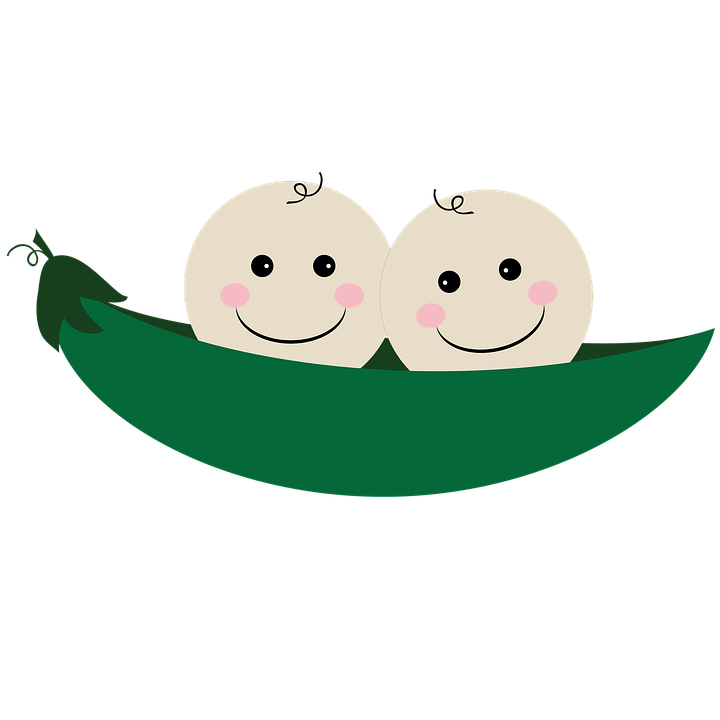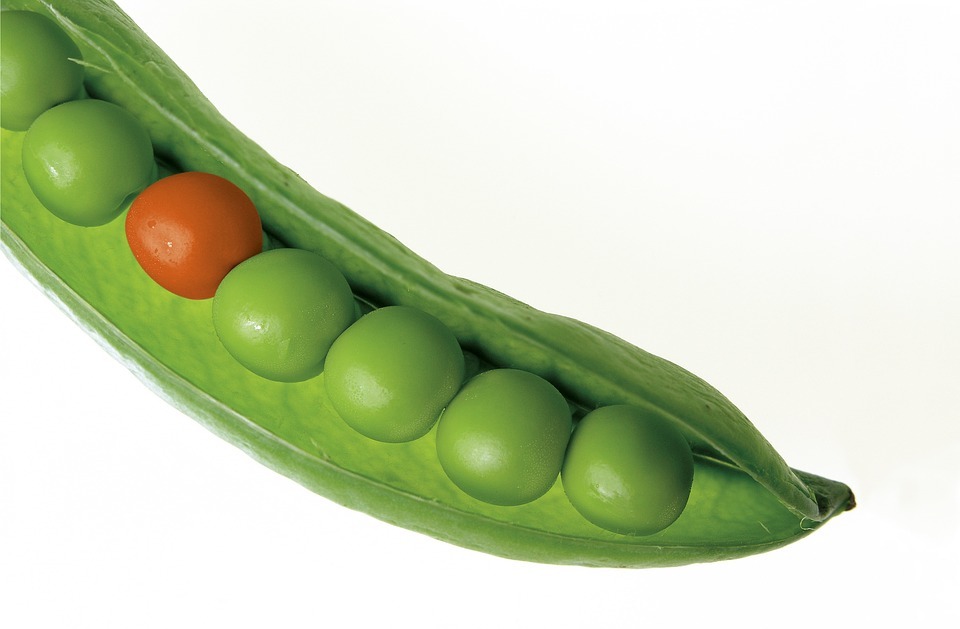This comprehensive guide explores the world of peas and rabbits, providing detailed information on the safety, benefits, and risks associated with incorporating peas into your bunny's diet. We'll cover everything from the nutritional value of peas to the proper ways to introduce them, ensuring a safe and enjoyable experience for your furry companion.
Part 1: The Nutritional Powerhouse of Peas

1.1. Unveiling the Nutritional Profile
Peas, a humble legume, pack a surprising punch in terms of essential nutrients. They offer a diverse range of vitamins, minerals, and antioxidants that play a crucial role in maintaining your rabbit's overall health and wellbeing.
- Vitamin C: This powerful antioxidant is vital for immune function, collagen production, and wound healing. It helps protect against infections and promotes healthy skin and connective tissues.
- Vitamin K: A crucial nutrient for blood clotting and bone health. It ensures proper blood coagulation and aids in the absorption of calcium, supporting strong bones and preventing fractures.
- Folate: Essential for cell growth and development, folate is particularly important during pregnancy and for red blood cell formation. It plays a vital role in the synthesis of DNA and RNA, crucial for healthy cell division and function.
- Iron: A vital component of haemoglobin, the protein that carries oxygen in red blood cells. Iron deficiency can lead to anaemia, causing fatigue, weakness, and shortness of breath.
- Potassium: This vital mineral regulates fluid balance, muscle function, and blood pressure. It's essential for nerve impulses, heart function, and overall muscle health.
- Fiber: The high fiber content in peas benefits your rabbit's digestive health. It promotes regular bowel movements, reduces the risk of constipation, and promotes a healthy gut microbiome. Fiber also contributes to a feeling of fullness, aiding in weight management.
1.2. The Importance of Fiber for Rabbits
Fiber is a key component of a rabbit's diet, and peas, with their high fiber content, contribute to healthy digestion. Here's why fiber is so essential:
- Promotes Regular Bowel Movements: Fiber acts as a natural "brush" that helps sweep through the digestive tract, ensuring regular waste elimination. This helps prevent constipation, a common issue for rabbits.
- Supports Gut Health: Fiber fuels the beneficial bacteria in the rabbit's gut, creating a healthy and balanced microbiome. These bacteria play a vital role in nutrient absorption, immunity, and overall digestive health.
- Prevents Bloating and Gas: While peas are a source of fermentable sugars, the high fiber content helps regulate their digestion, reducing the risk of bloating and gas, common side effects of consuming sugary foods.
Part 2: Potential Risks of Feeding Peas to Rabbits

2.1. The Risk of Bloating and Digestive Upset
Despite their nutritional benefits, peas also carry some potential risks for rabbits, primarily due to their sugar content and high fiber concentration.
- Bloating: The fermentable sugars in peas can lead to gas production in the rabbit's gut, potentially causing bloating and discomfort. This can be especially problematic if your rabbit consumes large quantities of peas or if they are not accustomed to them.
- Digestive Upset: The high fiber content, while beneficial for overall digestive health, can cause digestive upset, particularly if introduced too quickly or in large amounts. This can lead to diarrhoea, gas, and abdominal discomfort.
2.2. Calcium Content: A Potential Concern
While peas are not a primary source of calcium, they do contain a moderate amount. Excessive calcium intake can be problematic for rabbits, potentially leading to urinary tract issues. It's essential to monitor your rabbit's calcium intake from all sources, including hay, vegetables, and treats.
2.3. Avoiding Nutritional Imbalances
While peas offer valuable nutrients, they are not a complete food source. Over-reliance on peas can lead to imbalances in your rabbit's diet, potentially causing deficiencies in other essential nutrients.
Part 3: Introducing Peas Safely: A Step-by-Step Guide
3.1. Starting with Moderation: The Key to Success
The key to incorporating peas into your rabbit's diet safely lies in moderation. Always remember that peas should be treated as an occasional treat, not a staple food.
3.2. Gradual Introduction: Avoiding Digestive Distress
To avoid digestive upset, it's crucial to introduce peas gradually. Start with a tiny amount, perhaps just one or two peas, and observe your rabbit's reaction closely.
- Observe for Signs of Upset: Look for any signs of digestive distress, such as bloating, gas, diarrhoea, or changes in appetite. If you notice any of these symptoms, discontinue peas immediately and consult with your veterinarian.
- Increase Gradually: If your rabbit tolerates the initial small amount, you can slowly increase the quantity over a few days. This allows their digestive system to adjust to the new food.
3.3. Fresh vs Frozen: Choosing the Best Option
Fresh peas are generally preferred, as they retain more nutrients and are less likely to contain added sugars or preservatives. However, frozen peas can be a good alternative if fresh ones are unavailable. Choose frozen peas without added salt, sugar, or other additives.
Part 4: Types of Peas to Avoid
4.1. Pea Shoots: A No-Go for Rabbits
Pea shoots, the young shoots of pea plants, are too high in calcium for rabbits. Excessive calcium intake can lead to urinary tract issues, so it's best to avoid them entirely.
4.2. Pea Pods: Not Suitable for Your Bunny
The pods of pea plants contain a high concentration of sugars, which can be harmful to rabbits. Stick to the peas themselves and avoid offering the pods.
4.3. Sweet Peas: A Toxic Treat
Sweet peas, a type of flowering pea plant, are toxic to rabbits and should never be offered. They contain a substance called lathyrus, which can cause serious health problems.
Part 5: Feeding Tips and Considerations
5.1. Offering Peas as a Treat: The Right Approach
Offer peas as a treat, incorporating them into your rabbit's diet alongside their primary food sources, such as hay, fresh vegetables, and a small amount of pellets.
5.2. Variety is Key: Promoting a Balanced Diet
Ensure your rabbit has access to a wide variety of fresh, leafy greens, vegetables, and herbs. This diversity provides a wider range of nutrients and helps prevent nutritional imbalances.
5.3. Considering Your Rabbit's Size and Age
Younger or smaller rabbits may need smaller portions of peas than larger or older rabbits. Start with a small amount and monitor your rabbit's reaction carefully.
5.4. Monitoring Your Rabbit's Reaction
Closely observe your rabbit's behaviour and digestive health after introducing peas. If you notice any signs of upset, discontinue feeding peas immediately and consult with your veterinarian.
Part 6: Additional Considerations
6.1. Individual Rabbit Tolerance: Recognizing Unique Needs
Each rabbit is an individual, and their tolerance to peas may vary. Some rabbits may be able to tolerate them well, while others may experience digestive issues even with small amounts. Pay attention to your rabbit's specific needs.
6.2. Medical Conditions: Consulting Your Veterinarian
Rabbits with certain medical conditions, such as obesity, diabetes, or urinary tract problems, may need to avoid peas entirely or consume them in very limited quantities. Always consult with your veterinarian before introducing new foods to rabbits with pre-existing health issues.
6.3. Seasonal Availability: Fresh vs Frozen
Fresh peas are typically available in the spring and summer months. If fresh peas are not available, frozen peas can be a good alternative, as long as they are from a reputable source and stored correctly.
Part 7: FAQs
7.1. Can rabbits eat cooked peas?
While fresh or frozen peas are generally preferred, cooked peas can be offered in moderation. Avoid adding salt, sugar, or any other seasonings to the cooked peas, as these additives can be harmful to rabbits.
7.2. Are peas suitable for baby rabbits?
Baby rabbits should not be given peas until they are at least 6 weeks old. Their digestive systems are still developing and may not be able to handle the high fiber content.
7.3. What if my rabbit has eaten too many peas?
If you suspect your rabbit has eaten too many peas, observe them closely for any signs of digestive upset, such as bloating, gas, diarrhoea, or lethargy. If you notice any of these symptoms, contact your veterinarian immediately.
7.4. Are peas a good source of calcium for rabbits?
Peas are not a significant source of calcium. Rabbits need a diet rich in hay, which is a good source of calcium. Ensure your rabbit has access to plenty of high-quality hay.
7.5. Can I feed peas to my rabbit every day?
Peas should be offered as an occasional treat, not a staple food. Feeding them every day could lead to nutritional imbalances and digestive problems.
7.6. What are some alternatives to peas for my rabbit?
There are many other safe and healthy treats for rabbits, such as leafy greens, herbs, and fresh vegetables. Consider offering a variety of treats to ensure your rabbit gets a balanced diet.
This guide provides a comprehensive overview of pea consumption for rabbits. Remember, always consult with your veterinarian before introducing new foods to your furry friend to ensure their safety and wellbeing.
Everyone is watching
-

Do Rabbits Lay Eggs? (The Surprising Truth)
OTHER TYPES OF PETSThis article will unravel the common misconception that rabbits lay eggs, exploring the fascinating world of r...
-

Can Rabbits Eat Grapes? A Guide to Safe Rabbit Treats
OTHER TYPES OF PETSThis comprehensive guide will explore the safety and suitability of grapes for rabbits, providing detailed inf...
-

What's a Group of Rabbits Called? (A Comprehensive Guide)
OTHER TYPES OF PETSThis article delves into the fascinating world of rabbits, exploring the various terms used to describe a grou...
-

Predators That Hunt Rabbits: A Guide to Natural Enemies
OTHER TYPES OF PETSI've always been fascinated by the circle of life, that delicate dance between predator and prey. Growing up ...
-

Are Rabbits Nocturnal Animals?
OTHER TYPES OF PETSThe question of whether rabbits are nocturnal animals is a fascinating one, with a surprisingly complex answer...
